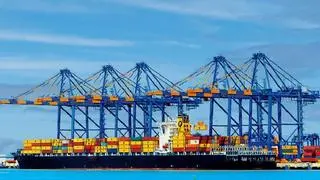MTAR Technologies (MTAR) — a Hyderabad based precision engineering solutions company listed at about ₹1,064 — a gain of about 85 per cent compared to its issue price and has sustained those gains so far in trading.
This has driven up the valuation of the stock sharply. At the issue price of ₹575 itself, MTAR was valued at 56.4 times its FY20 earnings and 47.2 times FY21 EPS (annualised earnings based on earnings for 9 months up to December 20), which was not cheap. The valuation has now moved up to 88-100 times. Investors who got allotment can book profits at the current level.
The company manufactures mission critical precision components with close tolerances (5-10 microns) and critical assemblies and serves customers in the clean energy, nuclear and space and defence sectors.
Growth drivers for the company look decent with the government’s push on Atmanirbhar Bharat and global focus on clean energy. But there are a few risks.
Though the company currently caters to 39 customers, the contribution of top three - Bloom Energy (64.53 per cent in FY20), NPCIL (10.95 per cent), Liquid Propulsion Systems Centre, ISRO (8.07 per cent in FY20) account for 84 per cent of the company’s revenue for the FY-2020.
The company has a long-standing relationship with these organisations – nine years with Bloom and more than two decades with NPCIL and ISRO. But the absence of long-term agreements by virtue of nature of the projects makes it vulnerable to any change in the supply chain strategies of customers - especially Bloom with respect to which external factors such as protectionist measures by the US, if any, can play a spoilsport too.
Also, projects from nuclear, and defence and space sectors (where entry barriers are liberalised to an extent for private players) follow a competitive bidding process. There is a possibility of MTAR losing new business from existing customers or pressure on profitability due to stiff pricing.
Further, lower budgetary allocation by the government towards the said sectors may also directly impact the company’s prospects.
However, in terms of financials, the operating performance of the company in the past few years has been decent. Between FY18 and FY20, total revenue grew at a CAGR of 16 per cent to ₹214 crore for FY20. Operating profit margin also grew to 30 per cent in FY20 from 20 per cent in FY18 significantly on the back of lower raw material cost.
The aggregate order book of the company as on December 31, 2020 was ₹336 crore. It works out to 1.6x of revenue from operations (FY20).







Comments
Comments have to be in English, and in full sentences. They cannot be abusive or personal. Please abide by our community guidelines for posting your comments.
We have migrated to a new commenting platform. If you are already a registered user of TheHindu Businessline and logged in, you may continue to engage with our articles. If you do not have an account please register and login to post comments. Users can access their older comments by logging into their accounts on Vuukle.